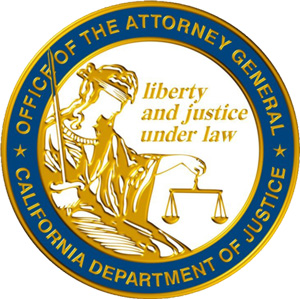Issues law enforcement bulletin on Governor Newsom’s Executive Order related to Non-Extradition of out-of-state providers and patients seeking abortion in California
September 25, 2022 - OAKLAND – California Attorney General Rob Bonta last Friday issued legal guidance to all California District Attorneys, Chiefs of Police, Sheriffs,  and State Law Enforcement Agencies on Governor Gavin Newsom’s Executive Order N-12-22 prohibiting the extradition — or removal — of individuals providing or accessing reproductive care in California. Since the Supreme Court’s decision overturning Roe v. Wade, more than a dozen states have instituted abortion bans and restricted access to reproductive care for millions of their residents. In particular, anti-abortion laws in anti-choice states authorize the criminal prosecution of those who seek, perform, or assist others in obtaining abortions. In today’s bulletin, Attorney General Bonta emphasized that California law enforcement is prohibited from cooperating with the removal of a non-fugitive individual seeking, providing, or assisting with access to reproductive care in California, where abortion is safe and legal.
and State Law Enforcement Agencies on Governor Gavin Newsom’s Executive Order N-12-22 prohibiting the extradition — or removal — of individuals providing or accessing reproductive care in California. Since the Supreme Court’s decision overturning Roe v. Wade, more than a dozen states have instituted abortion bans and restricted access to reproductive care for millions of their residents. In particular, anti-abortion laws in anti-choice states authorize the criminal prosecution of those who seek, perform, or assist others in obtaining abortions. In today’s bulletin, Attorney General Bonta emphasized that California law enforcement is prohibited from cooperating with the removal of a non-fugitive individual seeking, providing, or assisting with access to reproductive care in California, where abortion is safe and legal.
“Abortion is safe and legal in California — if you come to California in search of reproductive care or if you’re a Californian helping someone to access reproductive care including abortion, we will protect you. Our law enforcement will not cooperate with efforts to remove you or investigate your actions,” said Attorney General Bonta. “Everyone deserves access to a safe and legal abortion, if they so choose. My office will do everything in its power to fight back against those trying to strip individuals of power over their own bodies and futures.”
Currently, anti-abortion actors in anti-choice states are considering ways to track and monitor potentially pregnant individuals, their providers, and those who may assist and support them in receiving abortion care. Many anti-choice states are also considering legislation to attempt to extend criminal and civil liability outside their own state borders to patients, providers, and those who assist others in obtaining abortions. Under California Penal Code 1549.1, the Governor has the discretion to deny the extradition of a non-fugitive whose surrender has been demanded by the executive authority of another state. The Governor’s Executive Order explicitly states that he will deny all requests for the extradition of non-fugitive individuals seeking reproductive care, or anyone assisting them, within the state.
In today’s guidance, Attorney General Bonta outlines the following steps for law enforcement who are asked to surrender non-fugitive individuals providing or accessing reproductive care in California:
- Under California law, law enforcement has no obligation to make an arrest based on an out-of-state warrant;
- Law enforcement should closely examine any out-of-state warrant before taking an individual into custody;
- Before bringing forward any charges, prosecutors should closely review an out-of-state warrant and verify access to reproductive care is not misconstrued under other California criminal laws such as child neglect, child abuse, drug use, or murder; and
- Law enforcement agencies should immediately contact the California Attorney General’s Office if they have any questions regarding an out-of-state warrant or the Governor’s Executive Order.
California Attorney General Bonta has been a staunch supporter of reproductive rights. In June, the Attorney General issued guidance on abortion rights and protections under California law, which remain fully intact, following the U.S. Supreme Court’s decision overturning Roe v. Wade. In preparation for the Supreme Court's decision in Dobbs v. Jackson Women’s Health Organization, Attorney General Bonta issued an information bulletin to law enforcement to remind them of state laws protecting access to reproductive healthcare and security for providers. He also issued a consumer alert warning Californians seeking reproductive health services about the limited and potentially misleading nature of the services provided by crisis pregnancy centers, and emphasized health apps’ obligations under California law to protect and secure reproductive health information.
The bulletin can be found here.
Source: CA. DOJ








